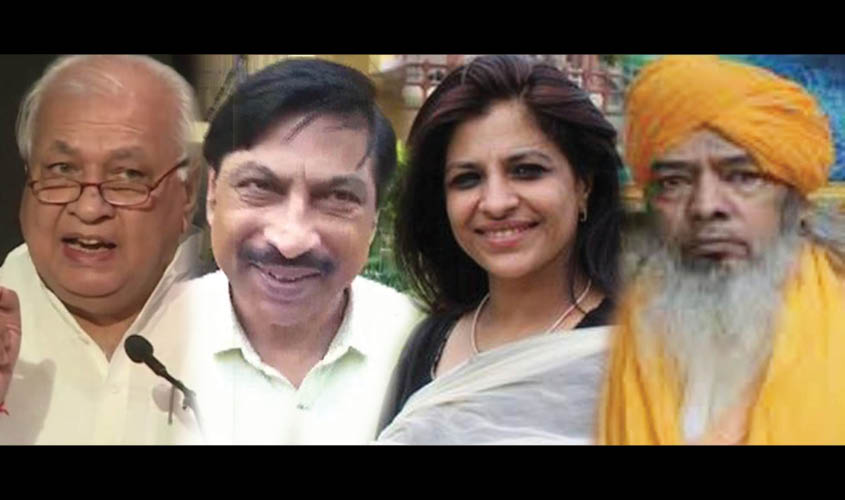NEW DELHI: Several Muslim leaders have welcomed the Ayodhya verdict, in which the Supreme Court green-lighted the building of the Ram temple at the disputed site, and have appealed to countrymen to maintain calm and unity.
Soon after the Ayodhya verdict was read out, K.K. Muhammad, former Archaeological Survey of India (ASI) chief who was a part of the team that excavated the Ayodhya site, expressed his satisfaction as the Supreme Court in its decision said that the verdict was based on the ASI’s report.
In a statement, K.K. Muhammad said: “This is a perfect judgement. It is exactly the kind of verdict that we all wanted. The court has given this verdict based on the evidence supplied by the ASI. Now, my stand has been proved right.”
On Saturday morning, a five-judge bench of the Supreme Court paved the way for the construction of a Ram temple at the disputed site at Ayodhya, and directed the Centre to allot an alternative five-acre plot to the Sunni Waqf Board for building a new mosque at a “prominent” place in Uttar Pradesh. The Ayodhya dispute can be traced as far back as 1856.
Shazia Ilmi, Bharatiya Janata Party leader, also took to Twitter to welcome the Supreme Court verdict.
“The long-pending dispute has been resolved today. The Supreme Court has delivered a balanced judgement. Now every Indian must work for the country’s progress. What is good for the country is good for every religion,” Ilmi’s statement on Twitter reads.
Among the many voices who welcomed the Ayodhya verdict, the most noticeable message came from Iqbal Ansari, one of the litigants in the Ayodhya case. Ansari in a statement to the media said: “I am happy that the Supreme Court has finally delivered its judgement and I respect that.”
The Ayodhya verdict was welcomed by political parties across the board. Following the same note, Bahujan Samaj Party (BSP) leader and parliamentarian from Uttar Pradesh Afzal Ansari, took to social media to welcome the verdict. “Today’s Ayodhya verdict should end the historical dispute; we all should welcome and spread brotherhood,” Afzal Ansari’s statement reads.
Not only political leaders, Islamic scholars also came out in support of the verdict.
Famous for his reformative stand, Kerala Governor and a prominent Islamic scholar Arif Mohammad Khan issued a statement that reads: “We all have a duty to respectfully accept the verdict and honour it. The verdict has come from the Supreme Court. As Indians, we are bound to respect it, honour it and follow it.”
Among the Islamic institutions, the most profound message came from Ajmer Dargah, which is known for upholding brotherhood and peace. The spiritual leader and the Deewan of the Dargah, Zainul Abedin Ali Khan said in his statement: “We respect and accept the verdict. I appeal to the people of the country to maintain harmony and peace. The judiciary is supreme and everyone should respect the decision. It is time to present a united face before the world because the entire world is looking at India today.”
Welcoming the verdict, Zufar Faruqi, chairman, Uttar Pradesh Sunni Central Waqf Board, Lucknow, said: “We welcome and humbly accept the verdict of the Supreme Court. I, as the chairman of the Sunni Central Waqf Board, will not file any review or curative petition in the apex court.”
However, some Muslim leaders, including Asaduddin Owaisi of the All India Majlis-e-Ittehadul Muslimeen (AIMIM), Uttar Pradesh Sunni Central Waqf Board’s Zafaryab Jilani and Maulana Arshad Madani, the president of Jamiat Ulema-e-Hind, expressed their dissatisfaction with the verdict, but they also appealed to the citizens to maintain peace in the country.
Maulana Arshad Madani, president of the Jamiat Ulema-e-Hind, said: “No one should see the Ayodhya verdict as their victory or defeat and everyone should maintain peace and harmony in the country.”
Maulana Arshad Madani told The Sunday Guardian: “The Supreme Court’s verdict is not in our favour, but we should respect the higher judiciary. We contested the dispute as per the Constitutional limitations given to us and we were sure that the Supreme Court’s verdict on the issue will come in our favour.”

